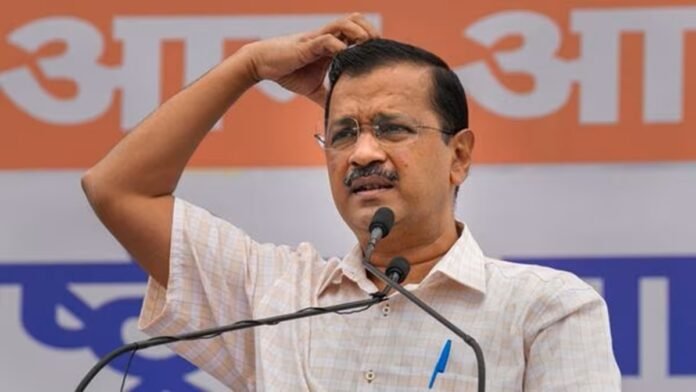The Enforcement Directorate (ED) has made another arrest in connection with the Delhi Excise Policy case, mere hours after the Supreme Court of India agreed to consider Delhi Chief Minister Arvind Kejriwal’s interim bail plea. This development underscores the gravity of the allegations surrounding the controversial excise policy and its potential implications for those involved.
The arrest by the ED comes as a continuation of its ongoing investigation into alleged financial irregularities and corruption related to the Delhi Excise Policy. The precise details of the arrest, including the identity of the individual apprehended and the specific charges leveled against them, have not been disclosed at the time of writing. However, it is evident that the ED is intensifying its efforts to unravel the complexities of the case and hold accountable those responsible for any wrongdoing.
The timing of this latest arrest is particularly noteworthy, occurring shortly after the Supreme Court’s decision to entertain Arvind Kejriwal’s plea for interim bail. Kejriwal, who has been at the center of the controversy surrounding the Delhi Excise Policy, sought relief from the apex court amidst mounting legal challenges and political pressure. The court’s willingness to consider his plea reflects the seriousness of the situation and the need for a judicious approach to addressing the legal complexities involved.
The Delhi Excise Policy has been a subject of controversy and debate since its inception, with critics alleging favoritism, nepotism, and financial impropriety in its implementation. The policy, which aimed to reform the excise system in the national capital, has faced scrutiny from various quarters, including opposition parties, civil society organizations, and the media. Allegations of corruption and malfeasance have cast a shadow over the credibility of the policy and raised questions about the integrity of those responsible for its formulation and execution.
Against this backdrop, the ED’s latest arrest signals a renewed commitment to holding individuals accountable for any unlawful activities associated with the Delhi Excise Policy. The agency, known for its mandate to investigate financial crimes and enforce economic laws, is leaving no stone unturned in its pursuit of justice. By apprehending individuals suspected of involvement in illegal activities, the ED is sending a clear message that no one is above the law and that those who betray the public trust will face consequences for their actions.
Meanwhile, Arvind Kejriwal’s plea for interim bail underscores the legal challenges and political pressures facing the embattled chief minister. Kejriwal, a prominent figure in Indian politics known for his anti-corruption stance and advocacy for transparency and accountability, finds himself entangled in a legal quagmire with far-reaching implications. The Supreme Court’s decision to consider his plea reflects the inherent complexities of the case and the need for a fair and impartial adjudication of the issues at hand.
As the legal proceedings unfold, it is essential to uphold the principles of due process and the rule of law. Both the ED’s investigation and Arvind Kejriwal’s legal battle must be conducted in a transparent and impartial manner, free from undue influence or interference. The integrity of India’s judicial system hinges on its ability to uphold justice without fear or favor, irrespective of the identities or affiliations of those involved.
In addition, the ED’s latest arrest in the Delhi Excise Policy case, coupled with the Supreme Court’s decision to consider Arvind Kejriwal’s interim bail plea, underscores the gravity of the situation and the need for a thorough and impartial investigation. As the legal proceedings continue, it is imperative that justice be served and accountability upheld. The eyes of the nation are watching, and the outcome of these developments will have far-reaching implications for the future of governance and accountability in India.

